| Columns Retired Columns & Blogs |
I don't think I want to know
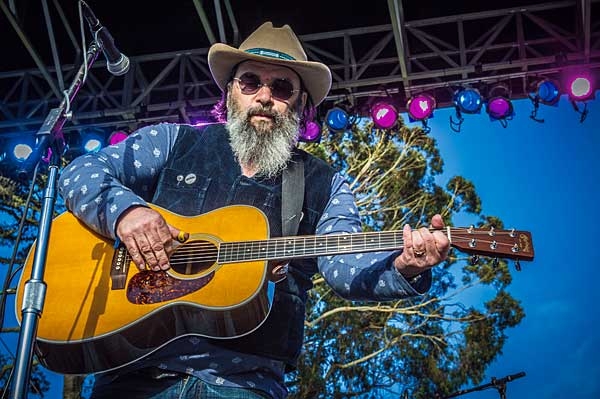
"It was a big year, man," Earle says. "A lot of stuff happened in 1967. My uncle, who was five years older than me, was living with us at the time. It was my dream come true, because he was always my hero. He brought a lot of records into the house, like Cream's Disraeli Gears and the Jimi Hendrix Experience's Are You Experienced."
That was when Earle began unlocking the secrets of the stringed instrument that ultimately became his muse. "I got my first guitar when my uncle moved out," he continues. "It was a 12-string, and I'd been trying to learn to play it upside-down because my uncle was left-handed, but I had to turn the strings around at that point. Things accelerated quickly after I turned the strings around."
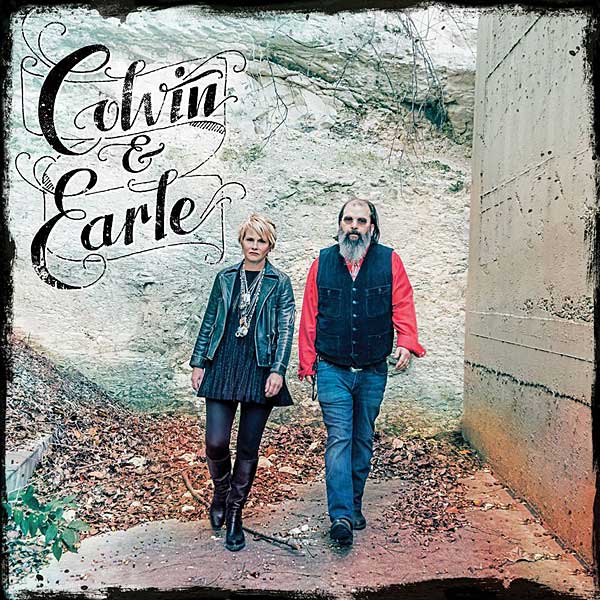
The album that influenced the teenaged Earle's playing the most at that time may surprise you: Flowers, the June 1967 Rolling Stones compilation comprising an even-dozen B-sides, singles, and previously unreleased tracks. "I learned to play guitar from Flowers as much as any other record," he told me. In fact, the Stones factor into the fabric of Earle's brand of Americana as much as any folk, country, blues, or bluegrass artist does. Earle cites the draw of a pair of Flowers tracks that he still plays: "Take It or Leave It," originally from the UK version of 1966's Aftermath, became an occasional encore, and "Ruby Tuesday"—the January 1967 single that was on the US version of 1966's Between the Buttons—is the fourth track on June 2016's Colvin & Earle, in a duet with old friend Shawn Colvin. You can hear the influence in his playing, and in his song creation.
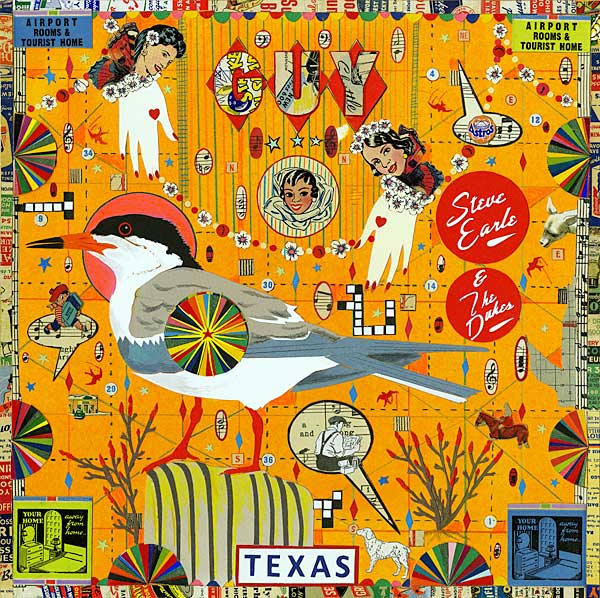
Every facet of Earle's rough-hewn, hardcore-troubadour DNA can be found in his most recent release, the 10-song interpretive collection Jerry Jeff (New West Records). It's the third of three albums that fete Earle's holy trinity, after Townes (Townes Van Zandt, May 2009) and Guy (Guy Clark, March 2019). The most recent Lone Star State outlaw singer/songwriter hero to be feted is, of course, the late, great Jerry Jeff Walker, who passed away in October 2020 at age 78, from cancer.
On the newest album, Earle seems to be deferring reverentially to Walker's distinctive vocal style. When I mentioned this to Earle, his reply was immediate and animated. "Yes, I was, because I was trying to be Jerry Jeff Walker!" he exclaimed. "He's part of who I am as a performer. I emulated Jerry Jeff Walker much more than Guy Clark or Townes. Now, I can do Townes's guitar style better than probably anybody alive, and I have Guy down pretty well, too, but Jerry Jeff—well, I was trying to be Jerry Jeff Walker before I even met him."
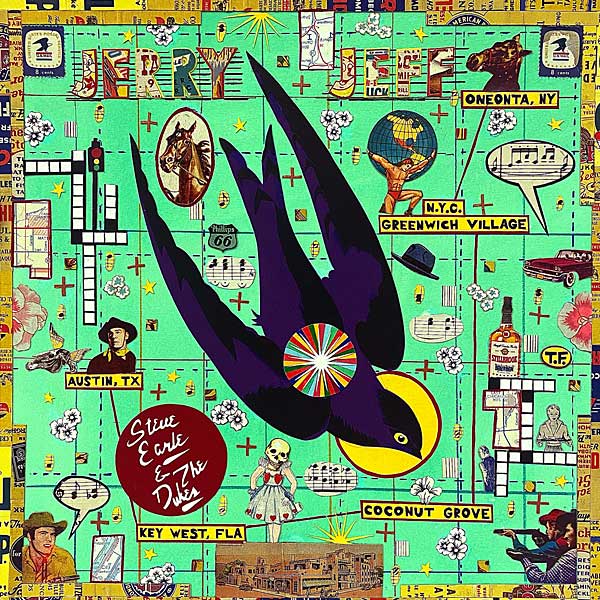
To corroborate that statement, cue up Earle's clear-eyed, gripping, gritty versions of "Gettin' By," "Mr. Bojangles," and "Wheel," from Jerry Jeff, then listen to the original versions. The years Earle spent sweating beer and slinging chords in honky-tonks have clearly paid off.
In a wide-ranging interview, Earle discussed his deep relationship with Walker's music, his 1980s recording misadventures, and the steps he's taken to ensure the sound of the scores of albums he's made since come as close as possible to representing his true intent.
Mike Mettler: You recorded Jerry Jeff at Electric Lady Studios in New York City, is that right?
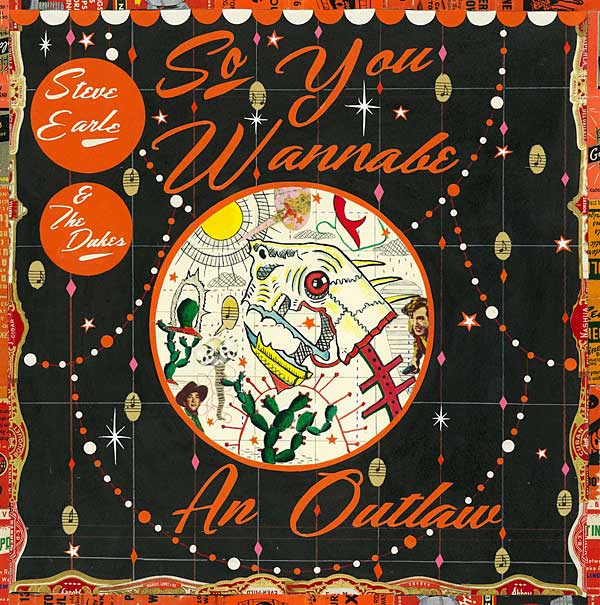
Steve Earle: Yeah. So You Wannabe an Outlaw was recorded in Austin, but everything since then has been at Electric Lady—Ghosts of West Virginia, J.T., and this record, Jerry Jeff. We were locked down for both Ghosts and J.T. , and Electric Lady was three blocks from my apartment at the time. I've done my last three records there—bam, bam, bam, right in a row (footnote 1).
Mettler: What do you like about recording at Electric Lady? I've been there a lot myself, so I know what it feels like every time you walk into that one big room.
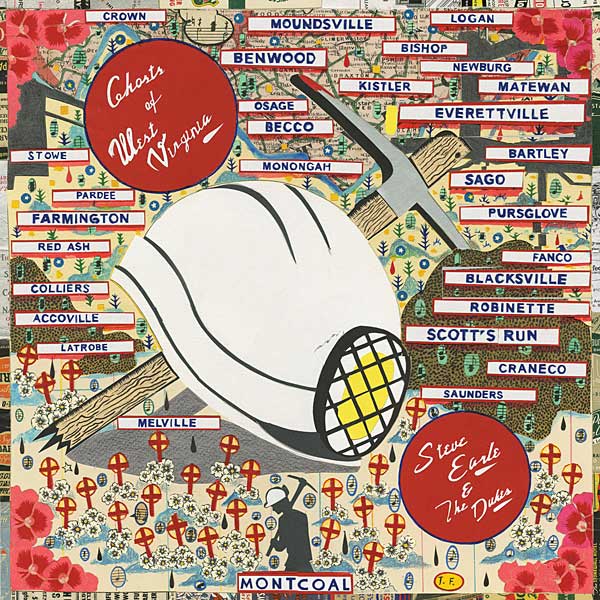
Earle: It's home. A lot of great records have been made there, so I work there a lot. I've done one-off projects there, and parts of Washington Square Serenade and Townes were recorded there, too.
Mettler: Do you and your longtime producer/engineer Ray Kennedy have an in-studio shorthand when you record together?
Earle: He's been recording me for a long time. We've almost killed each other several times over the years, but he knows where to put a microphone, and I just kind of figure it out. Mixing is where he really saves my ass, because I don't really want to go to mixing sessions anymore.
I've spent a long period of time trying to figure out how I wanted my records to sound. There are things I didn't like about the way my records sounded in the '80s. Looking back, I'm not embarrassed by any of that. It was just the '80s, when the drums were loud.
Mettler: Plus, you had to record all-digitally for MCA Records in those days. They made you use that 32-track Mitsubishi X-800 recorder whenever you recorded at Emerald Studios in Nashville.
Earle: Yes, as a rule, you had to record digitally for MCA in the '80s, absolutely. All four of those MCA records are digital, until they get on some other format (footnote 2).
I didn't have a dog in that fight back then. When I got out of jail (footnote 3), I wanted my records to sound different. I had really wanted The Hard Way to sound like The Faces, or the first Rod Stewart solo records. But it didn't, because it was digital, and it had too much reverb. After I knew what to do to not have records sound different than I wanted them to, I quit thinking about it. I just got back into worrying about good songs again, and now I know what to do. I know it's about making a record that's my record, and I just don't think about anybody, or anything, but trying to write the songs.
Mettler: Was there one song at the beginning of your partnership with Ray that was the lightning rod for you—like, "Okay, he knows just what I want"?
Earle: [without hesitation] "Feel Alright" [the lead track on March 1996's I Feel Alright]. That was a demo—an acoustic guitar and vocal demo. It was the first thing I recorded in that studio [Room & Board, in Nashville]. Ray overdubbed the bass and drums after the fact, and then Richard Bennett came in and played electric guitar when we finally decided to make it a record. So, yeah, that was the beginning of that relationship.
Mettler: Even though you don't attend mixing sessions with Ray anymore, what's your mixing philosophy?
Earle: I'm mixing everything in mono because I lost the hearing in my right ear completely. I've got sensorineural deafness that has nothing to do with sound pressure. I cannot hear in stereo. I just figured out that I didn't want to not know. I said, "Ray, let's just mix it in mono. If we can get it to sound good in mono, then we should be okay." I know I can live with whatever we're getting ready to put out.
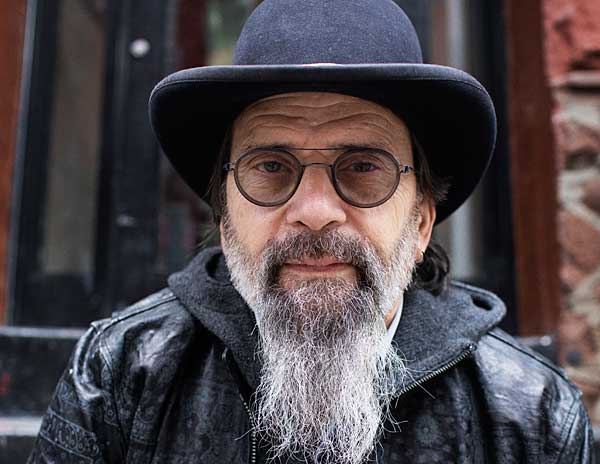
Mettler: Well, you and Brian Wilson are in the same boat, because he can't hear in stereo either, and it seems to have worked out for him.
Earle: It just made sense to me that you cannot hear a stereo mix with one ear. It can't be done. That's what stereo does. It creates an illusion based on the fact you have two ears, and whether you like it or not, it's processing those signals separately, and one's a little behind the other. In an analog matrix, you're never hearing music coming out of those stereo speakers at the same time. The needle is moving from one side of the groove to the other, so you're only hearing a really rapid sequence of signals from each side. It's faster than your ear and your brain can make out.
Footnote 2: Steve's first four albums on MCA, all digital recordings, are Guitar Town (March 1986), Exit 0 (May 1987), Copperhead Road (October 1988), and The Hard Way (July 1990).
Footnote 3: Earle was charged with possession of crack cocaine and firearms. After failing to appear in court, he was sentenced to a year in prison. He was released, in 1994, after 60 days, to a drug-rehab program.
